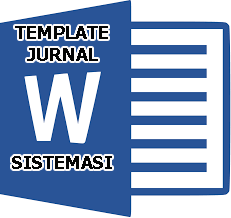Rare Animal Recognition Applicaton Using Augmented Reality Technology And Marker Based Qr Code
Abstract
Full Text:
PDFReferences
S. D. Riskiono, T. Susanto, and K. Kristianto, “Rancangan Media Pembelajaran Hewan Purbakala Menggunakan Augmented Reality,” CESS (Journal Comput. Eng. Syst. Sci, vol. 5, no. 2, p. 199, 2020, doi: 10.24114/cess.v5i2.18053.
I. A. Astuti and A. G. Mahardika, “Pengembangan dan Testing Marker 3D Printed Model pada Augmented Reality Planet Tata Surya,” Sist. J. Sist. Inf., vol. 10, no. 3, pp. 701–711, 2021.
R. S. Ernawati, E. W. Hidayat, and A. Rahmatulloh, “Implementasi Teknologi Augmented Reality Sebagai Media Pengenalan Aksara Sunda Berbasis Android,” J. Tek. Inform. Dan Sist. Inf., vol. 3, no. 3, pp. 512–523, 2017, doi: 10.28932/jutisi.v3i3.671.
Y. E. Windarto and M. Marfuah, “Perancangan User Interface Human Resource Cloud Management Software Berbasis Android,” Sist. J. Sist. Inf., vol. 9, no. 3, pp. 510–528, 2020, doi: 10.32520/stmsi.v9i3.893.
M. R. Zuliansyah, “Penerapan Augmented Reality Sebagai Media Pembelajaran Hewan Langka Di Lindungi Di Indonesia,” J. Inform. dan Rekayasa Perangkat Lunak, vol. 2, no. 1, pp. 1–15, 2021.
A. Pramono and M. D. Setiawan, “Pemanfaatan augmented reality sebagai media pembelajaran pengenalan buah-buahan,” INTENSIF J. Ilm. Penelit. Dan Penerapan Teknol. Sist. Inf., vol. 3, no. 1, pp. 54–68, 2019, doi: 10.29407/intensif.v3i1.12573.
M. T. Sangari, V. Tulenan, and M. Rumbayan, “Implementation of Augmented Reality Technology Village,” vol. 11, no. 2, pp. 109–120, 2022.
D. Raijada, K. Wac, E. Greisen, J. Rantanen, and N. Genina, “Integration of personalized drug delivery systems into digital health,” Adv. Drug Deliv. Rev., vol. 176, p. 113857, 2021, doi: https://doi.org/10.1016/j.addr.2021.113857.
I. P. O. Narwan, W. Widayani, I. A. Astuti, A. Nurmasani, I. Setiawanto, and R. H. P. Brotoatmodjo, “Rancang Bangun Interior Architectural Visualization Menggunakan Unreal Engine 4,” Sist. J. Sist. Inf., vol. 10, no. 3, pp. 741–753, 2021, doi: doi: 10.32520/stmsi.v10i3.1535.
A. H. Firmansyah, M. Rifa’i, and Y. Suprapto, “Rancangan Augmented Reality Glideslope Berbasis Android Dengan Unity Dan Blender Menggunakan Metode Mdlc Sebagai Media Pembelajaran,” in Prosiding SNITP (Seminar Nasional Inovasi Teknologi Penerbangan), 2022, vol. 6, no. 1.
D. W. Pradipta, B. Pudjoatmodjo, and A. Sularasa, “Perancangan 3d Aset Pada Aplikasi Augmented Reality Toko Mutiara Furniture,” eProceedings Appl. Sci., vol. 7, no. 6, p. 3541, 2021.
D. Sugiana and D. Muhtadi, “Augmented Reality Type QR Code: Pengembangan Perangkat Pembelajaran di Era Revolusi Industri 4.0,” in Prosiding Seminar Nasional & Call For Papers, 2019, pp. 135–140.
M. Munirah, “Development of learning syntax model in determining structure pattern end of language based mobile learning QR code,” in International Conference on Interdisciplinary Language, Literature and Education (ICILLE 2018), 2019, pp. 241–242. doi: 10.2991/icille-18.2019.50.
A. Adisel, “Manajemen Sistem Informasi Pembelajaran,” J. Adm. Educ. Manag., vol. 2, no. 2, pp. 105–112, 2019.
J. R. Luih, C. A. Haryani, and A. E. Widjaja, “Penerapan Teknologi Qr Code Berbasis Web pada Sistem Manajemen Inventaris di Gudang PT XYZ,” Technomedia J., vol. 7, no. 2 October, pp. 202–215, 2022.
S. Sendari and A. Firmansah, “Performance analysis of augmented reality based on vuforia using 3d marker detection,” in 2020 4th International Conference on Vocational Education and Training (ICOVET), 2020, pp. 294–298.
R. S. Kurnia and R. F. A. Aziza, “Desain User Interface Personal Asisten Keuangan Digital,” Sist. J. Sist. Inf., vol. 10, no. 3, pp. 502–515, 2021.
DOI: https://doi.org/10.32520/stmsi.v13i2.3361
Article Metrics
Abstract view : 665 timesPDF - 383 times
Refbacks
- There are currently no refbacks.

This work is licensed under a Creative Commons Attribution-ShareAlike 4.0 International License.









